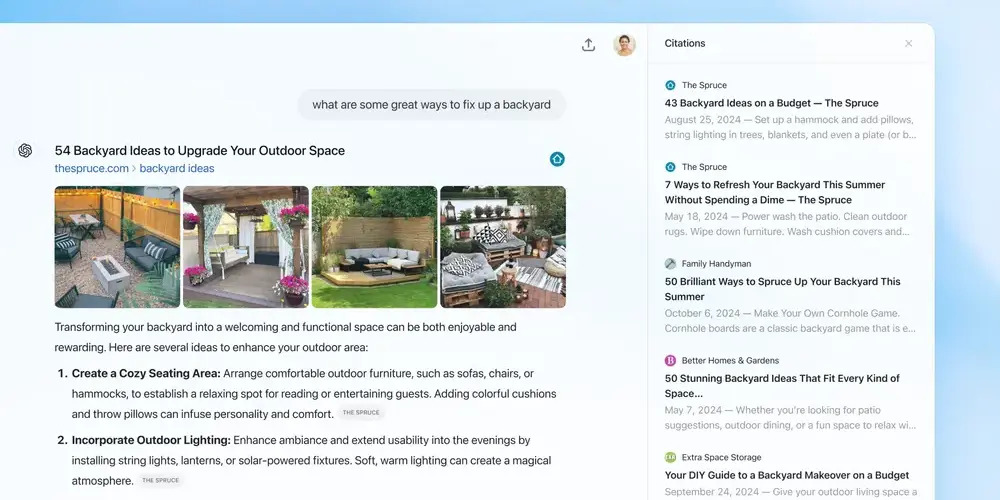In November 2022, when ChatGPT was launched, some observers were already predicting the death of Google. Two years later, the American online search giant is suffering very little from competition from the conversational robot designed by OpenAI. But the threat clearly increased on Thursday, with the integration of a real search functionality in ChatGPT, capable of finding information on the Internet to combine it with the power of generative artificial intelligence. And thus to replace traditional links or small extracts from websites with more complex and detailed answers. A new user experience that could challenge the overwhelming dominance of Google, which monopolizes more than 90% of traditional searches, according to StatCounter estimates.
Powered by Bing – Called ChatGPT Search, this new option should provide real-time results, based on trusted sources. It is currently only available to paying subscribers. But OpenAI promises to deploy it, with restrictions, to free users. It is accompanied by a graphic redesign to highlight the web pages used as sources. And it also offers widgets to display the weather, sports results or maps – like Google does. Unlike the Mountain View group, the start-up has not designed its own indexing system, relying on Bing, Microsoft’s engine. It also relies on a network of partner media, with which it has signed commercial agreements, such as The Worldthe Wall Street Journal and the Financial Times.
Filling the Gaps – ChatGPT was already able to find information on the Internet, but with limitations. Contrary to the tests carried out this summer, OpenAI has not opted for a new service, a direct competitor of la start-up Perplexity AI. But chose to integrate this functionality directly into its chatbot. The company led by Sam Altman is responding to Gemini, Google’s rival which already offered this option. It also addresses the shortcomings of ChatGPT, in order to transform it into an even more credible alternative to the flagship engine. Nearly half of Americans say they are interested in AI-generated searches. But ni Bingnor Perplexity AI managed to worry Google. OpenAI has much more important arguments: its 250 million followers and its brand image.
Inertia – The impact on Google could, however, remain limited, at least in the short term. The group benefits from the inertia of Internet users, who take time to adopt new reflexes. Changing well-established habits also requires experience. “ten times better”, underlines Brian Nowak of Morgan Stanley. Above all, Google did not sit idly by, quickly becoming aware of the danger. Since spring, it has started to deploy, not without adventuresresponses generated by its Gemini model within its engine itself. This module, called AI Overviews, is already available in around a hundred countries – but still not in the European Union. It allows Google to offer the best of both worlds: classic results and AI-powered results.
To go further:
– Google adds ads in AI-generated responses
– Why Google’s AI feature increases errors


